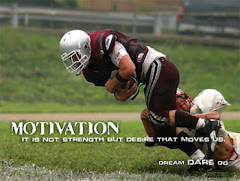
Washington, Jan 20: People who are highly motivated generally do better on specific tasks than those who are less motivated, but when it comes to fun tasks, the latter bunch emerges as the winner.
According to lead researcher Dolores Albarrac¡n from University of Illinois, the findings suggest that two students may respond quite differently to a teacher's exhortation that they strive for excellence.
The study suggests that those who are "chronically uninterested in achievement" are not operating out of a desire to do badly.
Their differing responses simply may reflect the fact that they have different goals.
"The competitive mindset, the achievement mindset becomes a huge de-motivator for those who don't necessarily value excellence as much as they value their well-being," said Albarrac¡n.
"Perhaps the reason they don't care to do well is because they want to do something else; they want to enjoy themselves - which is not a bad goal," she added.
In four studies, the researchers evaluated how participants' attitudes toward achievement, called their "chronic achievement motivation," influenced their performance on various tasks.
It showed that those with high achievement motivation did better on a task when they also were exposed to subconscious "priming" (the flash of a word on a computer screen, for example, that appeared too briefly to be consciously noticed) that related to winning, mastery or excellence.
Those with low achievement motivation did worse under the same conditions.
Similarly, when given a choice, those with high achievement motivation were more likely to resume an interrupted task, such as a word-search puzzle, which they were told tested their verbal reasoning ability, than their peers, who were more likely to switch to a task perceived as fun.
The researchers also found that those with high achievement motivation actually did worse on a word-search puzzle when they were told the exercise was fun and they had been exposed to achievement primes, such as the words "excel," "compete" or "dominate."
Their counterparts, who were not very motivated to achieve, did better under the same conditions.
These finding suggest that achievement primes inhibit the desire to have fun in those who are motivated to achieve, the authors wrote. But in people who lack achievement motivation, the same cues seem to enhance their desire - and ability - to perform a task seen as fun.
"It's not that those with high achievement motivation always perform better. You can also get the low achievement motivation folks to perform better than the highs when you present a task as enjoyable and fun," Albarrac¡n added.
The study appears in the Journal of Personality and Social Psychology.
Source

No comments:
Post a Comment